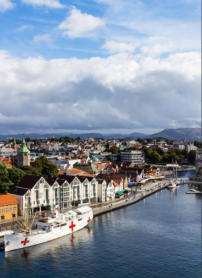
© Czech Technical University in Prague


About
Project Results and Impact:
The project's outcomes have been transformative for its beneficiaries. Academic staff from both universities benefited immensely from the interdisciplinary knowledge-sharing, gaining valuable insights for their future teaching activities, projects and publications. Young researchers were equipped with new ideas and skills essential for publication and grant writing. Moreover, the project has paved the way for a deeper inter-institutional collaboration on education and research related to smart and sustainable cities. As tangible evidence of its impact, the academic staff felt better prepared to modernize academic curricula, and the intellectual outputs developed are now publicly available, serving as a valuable resource for other universities. Both universities plan to use the sourcebooks as valuable references in their future joint initiatives related to Erasmus key actions (e.g., Erasmus Capacity Building, Erasmus Cooperation Partnerships and Erasmus Joint master’s degree) and Horizon Europe programme.Target audience
The primary target groups were early career researchers and lecturers from both universities (CTU and UiS), all of whom were fully employed by these institutions. The secondary target group was composed of senior lecturers and researchers. Research shows that recent graduates tend to lack more generic skills outside their own field or discipline. This is a result of the current education approaches adopted by most of universities. Doctoral education was primarily designed to answer the human resources needs of academia. However, nowadays, increasing numbers of doctorate holders seek employment outside academia. Accordingly, doctoral education can be one of the means by which universities take part in the development of industry in their regions. Such generic skills that are considered useful include the ability to work across disciplines and sectors, work collaboratively in addressing societal challenges and finally to secure external funding for research and innovation. This project proposed that these challenges could be addressed in a progression model in which researchers and lecturers from different disciplines within the field of sustainable and smart cities learned to work across disciplines and sectors. The second step was to augment skills related to challenge-based research, i.e., research that took its starting point in a broader societal challenge rather than a specific disciplinary research project. In other words, participants were able to contextualize their own research as a component towards broader societal challenges. Finally, the participants were introduced to mission-based research & innovation as a way to think about and organize challenge-based research. The target groups benefited from the project by becoming prepared for how to work within the new research and innovation framework in the Horizon Europe Framework and elsewhere, whether they decided to remain in academia or enter knowledge-intensive industries.
EEA & Norway Grants – Institutional Cooperation Programme







for climate change and smart cities
Building capacity in higher education




© Czech Technical University in Prague


About
Project Results and Impact:
The project's outcomes have been transformative for its beneficiaries. Academic staff from both universities benefited immensely from the interdisciplinary knowledge-sharing, gaining valuable insights for their future teaching activities, projects and publications. Young researchers were equipped with new ideas and skills essential for publication and grant writing. Moreover, the project has paved the way for a deeper inter-institutional collaboration on education and research related to smart and sustainable cities. As tangible evidence of its impact, the academic staff felt better prepared to modernize academic curricula, and the intellectual outputs developed are now publicly available, serving as a valuable resource for other universities. Both universities plan to use the sourcebooks as valuable references in their future joint initiatives related to Erasmus key actions (e.g., Erasmus Capacity Building, Erasmus Cooperation Partnerships and Erasmus Joint master’s degree) and Horizon Europe programme.Target audience
The primary target groups were early career researchers and lecturers from both universities (CTU and UiS), all of whom were fully employed by these institutions. The secondary target group was composed of senior lecturers and researchers. Research shows that recent graduates tend to lack more generic skills outside their own field or discipline. This is a result of the current education approaches adopted by most of universities. Doctoral education was primarily designed to answer the human resources needs of academia. However, nowadays, increasing numbers of doctorate holders seek employment outside academia. Accordingly, doctoral education can be one of the means by which universities take part in the development of industry in their regions. Such generic skills that are considered useful include the ability to work across disciplines and sectors, work collaboratively in addressing societal challenges and finally to secure external funding for research and innovation. This project proposed that these challenges could be addressed in a progression model in which researchers and lecturers from different disciplines within the field of sustainable and smart cities learned to work across disciplines and sectors. The second step was to augment skills related to challenge- based research, i.e., research that took its starting point in a broader societal challenge rather than a specific disciplinary research project. In other words, participants were able to contextualize their own research as a component towards broader societal challenges. Finally, the participants were introduced to mission-based research & innovation as a way to think about and organize challenge-based research. The target groups benefited from the project by becoming prepared for how to work within the new research and innovation framework in the Horizon Europe Framework and elsewhere, whether they decided to remain in academia or enter knowledge- intensive industries .
EEA & Norway Grants – Institutional Cooperation Programme

Building capacity in higher education
for climate change and smart cities

































